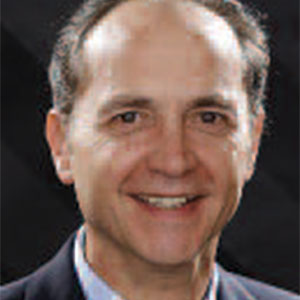At the end of my undergraduate program in education at the Complutense University of Madrid, Spain, I had to choose a topic for my thesis. As I had recently converted to the Seventh-day Adventist faith, I thought that exploring the educational ideology and philosophy of Ellen G. White would be a good topic. After all, her writings made a lot of sense and were quite advanced for her time. I talked to one of the most rigorous professors in the area of history of education about the possibility of developing such a topic and about him being my advisor. His only question was on the relevance of my proposed author. He had never heard of Ellen G. White, and he would not accept someone just providing sectarian counsel to a minor religious denomination.
For the following weeks I searched for articles, theses, and dissertations where Ellen G. White was the object of study, and I found a half-dozen academic studies to convince my professor. He accepted my proposal, and I had the privilege of studying and writing on this topic for a year under his guidance. By the end of the academic year, I successfully defended the thesis before a committee of scholars who were very interested in Ellen G. White as a contributor to the history of education in the U.S.A. and the world.
Studying Ellen White’s writings and particularly what she had to say about education was enriching. Through this exercise, I learned not only the content of her messages on education but also came to admire and respect this author and to accept her messages as inspired.
One of the things I appreciate about Ellen White’s writings is her balance. She tends to present the opposing poles to invite the reader to choose a well-balanced position. Therefore, it is important to consider the whole picture and context, rather than focusing on one sentence or idea. Take for example, this quote:
“Children should be taught to respect experienced judgment. They should be so educated that their minds will be united with the minds of their parents and teachers, and so instructed that they can see the propriety of heeding their counsel.”1
This may be read with the understanding that parents and teachers should take full control of their students’ minds and not promote independent thinking or opinion. But in the same chapter she also wrote:
“There are many families of children who appear to be well trained while under the training discipline; but when the system which has held them to set rules is broken up, they seem to be incapable of thinking, acting, or deciding for themselves. These children have been so long under iron rule, not allowed to think and act for themselves in those things in which it was highly proper that they should, that they have no confidence in themselves to move out upon their own judgment, having an opinion of their own.”2
Taken individually, the above quotes can lead to either extreme rigidity or limitless freedom in the training of the church’s children. But in the larger context, one must adopt a more central and balanced position. We therefore should exert care in not falling into either extreme.
The Bible also alerts us to the risks of extremes. It seems like even too much of a good thing may be dangerous. Said the son of David, king in Jerusalem: “Do not be overly righteous, nor be overly wise: Why should you destroy yourself?”3 Without entering into the debate of what it means to be too righteous or too wise, we can easily learn from these words that extremes are not recommendable.
Over the past few months, we have heard multiple explanations and possible consequences of the COVID-19 pandemic. From voices stating that it is a hoax to those affirming that humans and animals will be extinguished within two years’ time, we have received all sorts of interpretations. This is only normal and expected from diverse populations with access to extensive information and with a great deal of extra time. The problem is when we are lured by and accept radical positions just because they come packed in a little virtual message. As useful as the Internet has become, how misleading it can be! Long gone are the times when you only could share information if you were willing to take time to think, reflect, write, and distribute with the moderation that previous methods allowed. Today, through social media and electronic mail, we may freely use Copy & Paste, Forward to All, Share, Reshare, and so on. In an instant, you may have sent nonsensical, confusing, distracting, or even truly harmful content.
In conclusion, parents, teachers, and students must exert their unwavering commitment to develop their ideas, examining multiple and reliable sources and being critical of all. Most importantly, they must constantly inform and shape those ideas with Scripture. Never before has the message that true education is to “train young people to be thinkers, and not mere reflectors of other people’s thought”4 been as relevant as it is today.
Recommended citation:
Julián Melgosa, “Seeking Balance in a World of Extremes,” The Journal of Adventist Education 82:2 (April-June 2020): 3, 47.
NOTES AND REFERENCES
- Ellen G. White, Counsels to Parents, Teachers, and Students (Mountain View, Calif.: Pacific Press, 1913), 74.
- Ibid., 74.
- Ecclesiastes 7:16. New King James Version (NKJV). Scripture taken from the New King James Version®. Copyright © 1982 by Thomas Nelson. Used by permission. All rights reserved.
- Ellen G. White, True Education (Nampa, Idaho: Pacific Press, 2000), 12.




